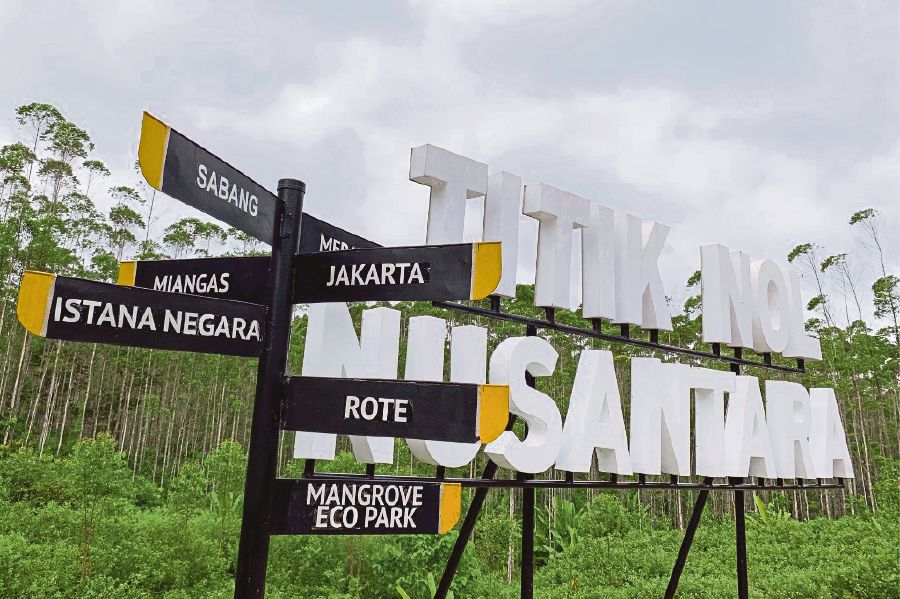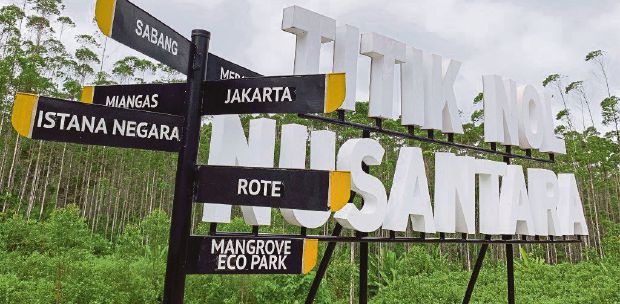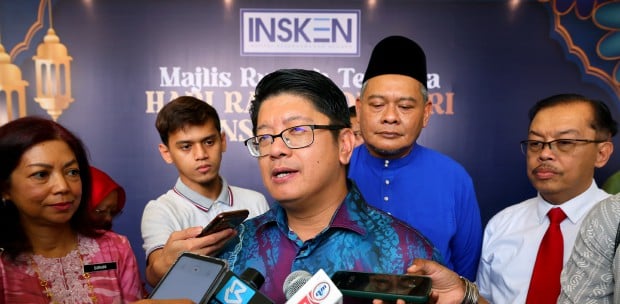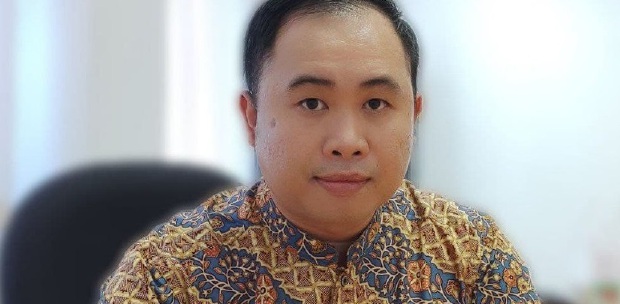MUCH has been made of the shift of Indonesia's capital from Jakarta to Nusantara in East Kalimantan, expected to begin as early as next year.
Excitement, especially among the business community in Sarawak and Sabah, has been building in anticipation of the move that may potentially make Malaysian Borneo the front door into the vast Indonesian archipelago of nearly 280 million people.
Such sentiments are, to be quite frank, overblown, even maybe somewhat condescending. Indonesian leaders, both political and in business, will largely decide what is best for the country as a whole.
Non-Indonesians, even those sharing this vast island in which Nusantara is located, will, at best, be bit players taking whatever may be on offer, and seeing what comparative advantages they may be able to offer Indonesians.
Yes, Sarawak and Sabah may front the South China Sea from which much of global trade passes through. But unless the transport links with Kalimantan are planned, well executed and fully integrated, Malaysian Borneo's "front-door" advantage may count for little.
We witness, for example, that what used to be well-utilised daily flights between Kuching and Pontianak, the West Kalimantan capital, before the Covid-19 pandemic, have still not been revived because of the absence of approvals from the authorities in Jakarta.
This despite Indonesian-registered vehicles becoming an ever-ubiquitous presence on Kuching streets today, a testimony to the strength of people-to-people contacts across the border and, with it, growing trade and business links.
Those in Sarawak must also note the even more egregious case of the Tebedu inland port situated near the land-border crossing into West Kalimantan. Conceived in the early 2000s, today it remains a mute monument to missed economic opportunities.
An adjacent site had even been earmarked as an industrial park, where investors would build factories and Indonesian workers would be employed by the day and return across the border by nightfall.
For some reasons, the grand idea fell foul of Indonesian officialdom, which has not been placated despite high-level representations from Sarawak and even the federal government.
Could it be that Indonesia felt shortchanged, either by lack of prior consultations before the idea came to fruition or simply that it did not have enough of a stake in what was very much a cross-border venture?
Or was it that Indonesian sensibilities about perceived exploitation of its supposedly cheap labour were not adequately assuaged?
In any case, cheap and abundant Indonesian labour from Kalimantan is increasingly a myth as the region's lands have been opened up for oil-palm estates and absorbing local Indonesian labour.
As if to drive home whatever may be the point from across the border, the Indonesian border post at Entikong has been lavishly redeveloped to make the Malaysian border checkpoint at Tebedu something of an embarrassment in comparison.
So far, the most concrete venture arising from Nusantara that Sarawak appears to have a stake in is a dam planned to be constructed to quench the new capital's thirst for green and renewable energy.
Here again, what exactly Sarawak can bring to the table is not exactly apparent.
Sarawak and Sabah officials will need to keep their ears close to the ground and sniff out real opportunities that will be truly "win-win" propositions for both Malaysia and Indonesia.
They will likely need to tap outside expertise, either from federal authorities or perhaps even from Singapore, to come up with good ideas to benefit all parties.
Perhaps, Malaysian Borneo can use its convening muscle to conjure up a multi-national "brain trust" that can turn the whole of Borneo — one of the last remaining large tropical green "lungs" — into a really sustainable development showcase to itself and to humanity at large.
The writer views developments in the nation, region and wider world from his vantage point in Kuching






